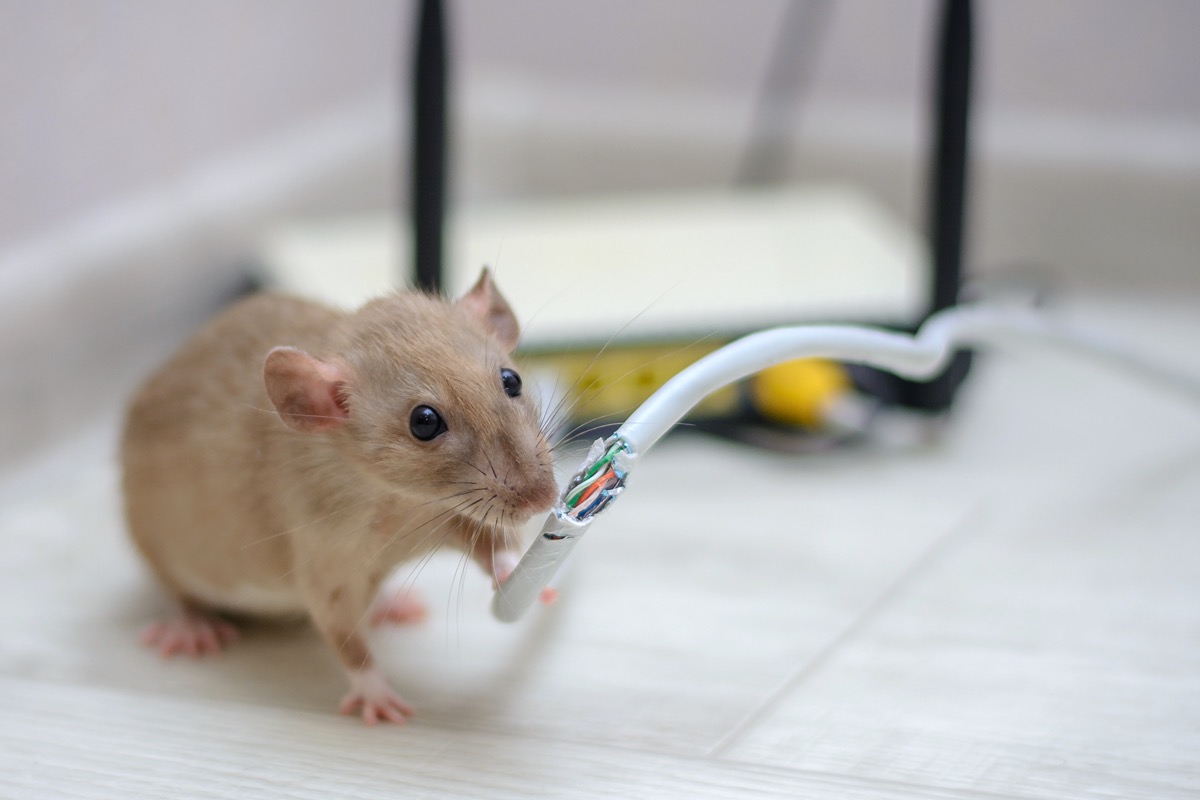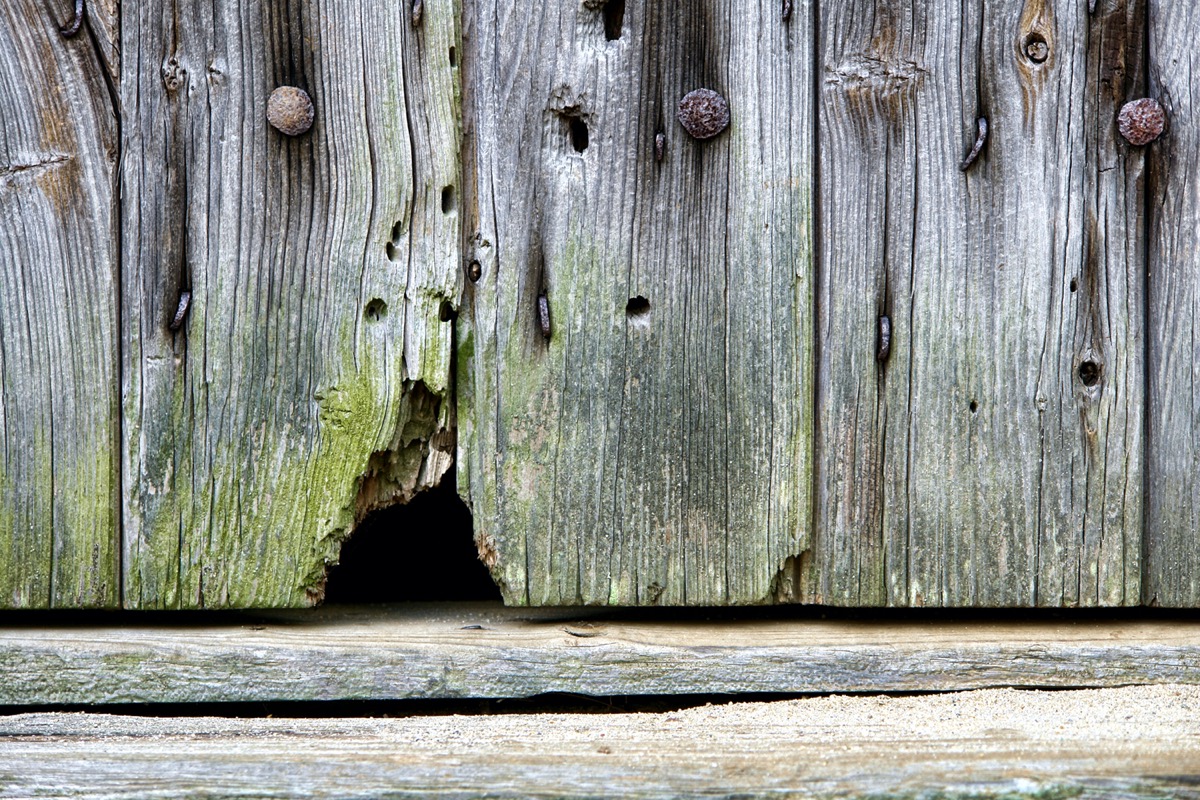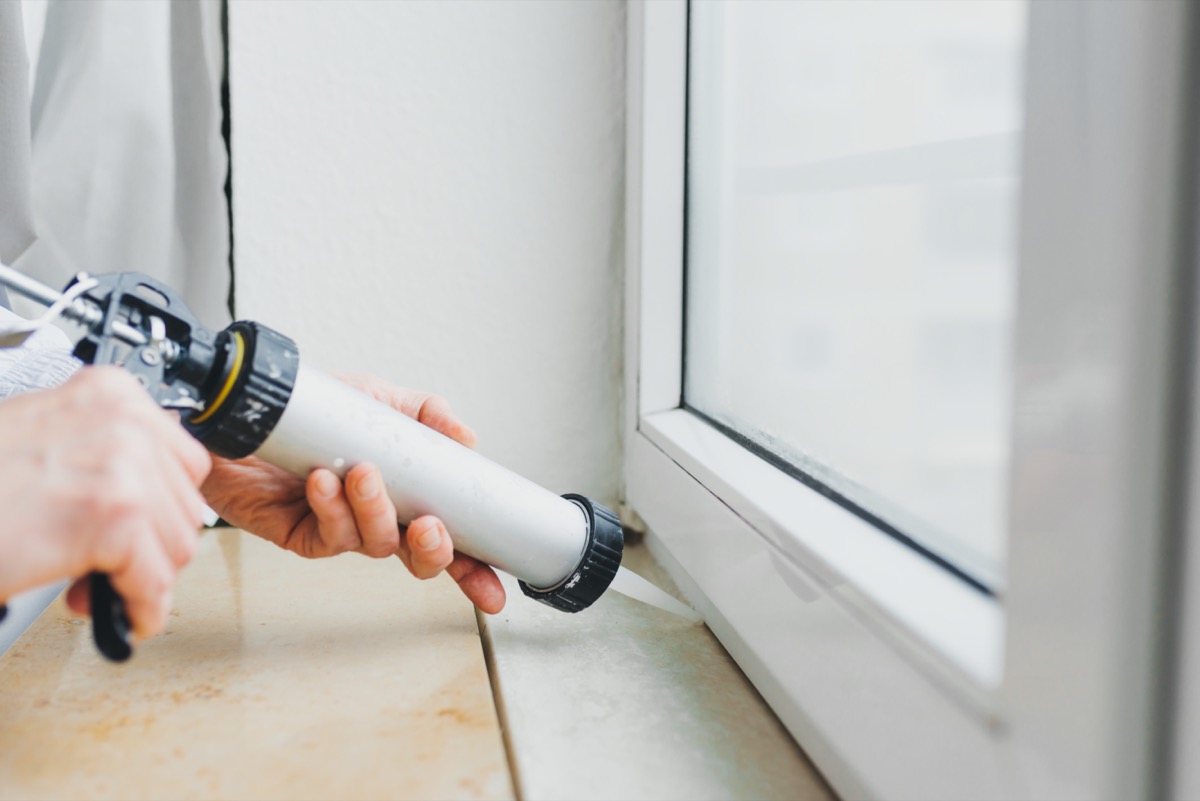According to a 2012 report from Pest World, rodent damage is thought to be responsible for up to 25 percent of fires in which the cause is otherwise undetermined. Unfortunately, mice are notorious for causing damage to electrical wiring, which can spark a fire if not remedied quickly. “Wires offer the perfect material for mice to grind their teeth against. This enables the mice to control the growth of their sharp teeth,” explains Sam Choan, founder of natural pest consulting company Organic Lesson. However, that’s not the only reason mice are drawn to your home’s inner workings. “Rodents love to gnaw on electrical wires because the insulation is typically soy-based plastic that they can consume,” says Zachary Smith, president of Smith’s Pest Management. Unfortunately, even if those pests aren’t actively chewing through your wires, their very presence in your home can present a mortal safety issue. “Rodents prefer to build nests in tight spaces and sometimes they will build a nest inside an electrical panel, which can cause a short circuit and start a fire with the nesting material as well,” explains Smith. Even if your home hasn’t had problems with rodents in the past, wintertime can send pests scrambling to find a place to ride out the cold weather, meaning they show up without warning. In the absence of electrical issues, rodent infestations can still cause serious damage that’s both costly and difficult to repair, as well. Nancy Troyano, PhD, a board certified entomologist and director of operations education with Ehrlich Pest Control, explains that mice and rats have sharp enough teeth to chew through sheetrock, wood, asphalt, copper, and lead. “Gnawing on these types of items can lead to disastrous results such as fires, explosions, indoor flooding, and high-tech equipment malfunctions,” explains Troyano. If you want to reduce your risk of rodent damage to your home, there are a few simple tricks to do so. And for more ways to avoid a costly household repair, check out these 50 Ways You’re Damaging Your Home and Don’t Even Know It. Even if you haven’t seen any rodents in the flesh inside your home, there are numerous signs that can alert you to their presence. According to the experts at Mr. Electric, rodent skeletons, droppings, pieces of loose insulation, damaged walls, or unexpected noises in your home can all be signs of a pest problem. And for more uninvited guests to watch out for, This Is the Most Dangerous Household Pest, Experts Say. Even if there aren’t obvious entry points into your home, make no mistake: rodents can still get in. “Mice can enter openings of a quarter inch while rats and squirrels need approximately one half inch in order to gain access. Due to a rodent’s bone structure, if the head will fit into the opening, they can pull the body through,” explains associate certified entomologist Mike Duncan, national technical manager at Nolan Pest Control.ae0fcc31ae342fd3a1346ebb1f342fcb If you want to keep those pests out, caulk around windows, door frames, and baseboards; address any gaps in your siding; replace or repair any rotten woodwork; and fill existing entry points with steel wool until you find a permanent fix. If you want to keep rodent infestations at bay, you will have to physically remove any existing pests from your home, unpleasant as the thought may be. Duncan explains that mice and rats are best lured using mechanical, glue, or bait traps, while squirrels present additional challenges. “Squirrels need to be trapped using a live trap and be monitored daily. When captured, they need to be released away from the structure,” Duncan explains. And for more great household tips delivered to your inbox, sign up for our daily newsletter. If your solo efforts aren’t yielding the results you want, it’s time to call in a professional. “A professional inspection will be able to identify openings and make recommendations for exclusion techniques and trapping,” explains Nolan. And if you want to keep your space safe, make sure you know The Biggest Danger in Your Garage, According to Experts.




